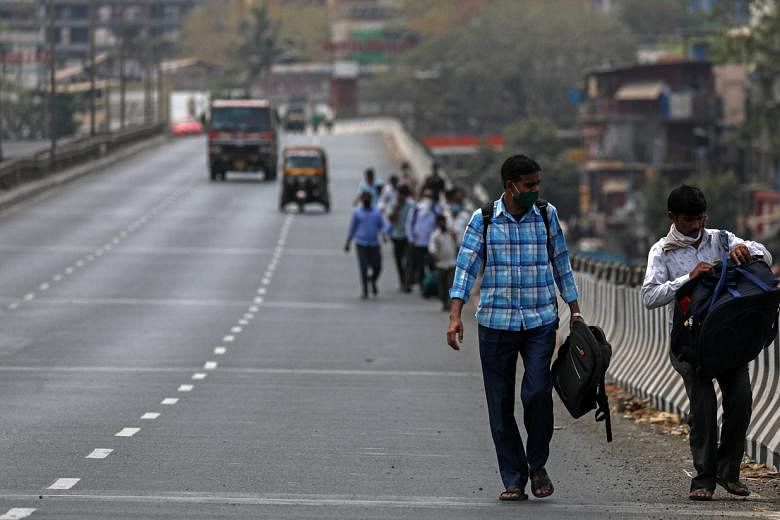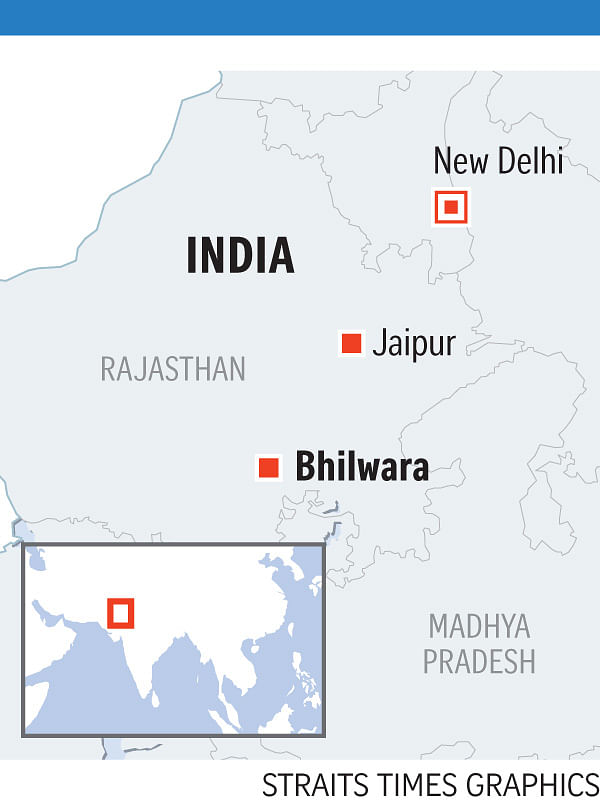An asymptomatic doctor, along with his team, continued seeing more than 6,000 patients before he fell sick with Covid-19. This could have easily spelt disaster for Bhilwara, a small city in the state of Rajasthan. In fact, it nearly did.
Three days after March 19, when the doctor tested positive for the virus, 13 people, including several of his colleagues at the hospital where he worked, were found to be infected with the coronavirus.
Panic spread like wildfire across the Bhilwara district which has a population of around 2.7 million. It was soon being described as a hot spot that threatened to mutate into "India's Italy".
But a slew of timely and drastic measures taken by the district authorities since March 20 - officially described as "ruthless containment" - pulled Bhilwara back from the brink of a spiralling epidemic.
A potential surge in the number of positive cases has been pre-empted and, since April 2, only one fresh case has been reported. That was on Thursday.
The tally of coronavirus cases stood at 28 yesterday. Of them, two had died from Covid-19, while another 15 have been discharged after recovery.
The district's record in stemming the disease is now being touted as a potential model that could be replicated in other parts of India, as the vast country considers easing its lockdown but with hot spots under perhaps an even more stringent watch.
Success in Bhilwara has, however, not come easy. It began with a curfew imposed on March 20 across the district, with entry points sealed. Containment zones were created around spots that reported positive cases and no movement was allowed within these zones. These areas were also disinfected daily.
Mass screening was carried out simultaneously. The district's Collector or top administrator, Mr Rajendra Bhatt, told The Straits Times that "every person in the district" had been screened - a process that has led to more than 3.3 million screenings, as some individuals were tested more than once, and over 10,000 suspected individuals being isolated.
As many as 27 hotels were requisitioned to ramp up the government's quarantine capacity and "corona fighters" were appointed in different neighbourhoods to keep watch on those in quarantine.
Efforts are also under way to ramp up testing, with more than 3,750 tests conducted so far. A lab was set up in the district this week so that samples do not need to be transported to the state's capital, Jaipur.
The administration's measures were strengthened with a more stringent curfew on April 2 that brought the shutters down even on shops selling essential products and further curtailed the movement of people. Government teams have fanned out instead to supply groceries and manage the distribution of medicine.
Mr Harendra Kumar, the district's superintendent of police, said: "We have had to make extensive arrangements because without a continued supply of food items and other essentials, we will not be able to hold people within their homes."
He added: "To ensure that the city remains free from Covid-19, we need a containment strategy that is foolproof, efficient and, if required, ruthless too."
Locals have already had a taste of this tough approach, with 52 individuals arrested and around 1,200 vehicles seized for flouting orders.
The biggest challenge for his team, said Mr Bhatt, has been the uncertainty over the extent of the virus' spread in the district as there is no precise record of how many patients the infected doctors saw.
"This policy of ruthless containment will continue for now," he said, noting that there would be more clarity on April 17 and May 1, when the second and third 14-day cycles following the clampdown end.
"That will give us a clear picture as to whether all our efforts have borne fruit."


